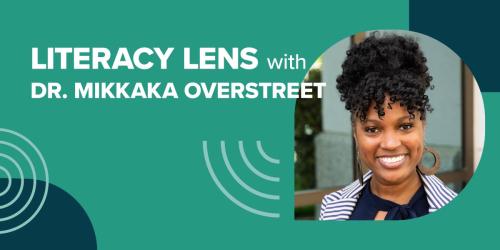Broadening Horizons: How NW RISE Helps Students Connect, Collaborate and Learn From One Another

As my 11th-graders were getting ready to share their argumentative writing essays with students in other states via a learning management system for the first time, I anticipated they would make some sarcastic and offhand remarks. However, other comments surprised me:
“I am not submitting my paper on that group page. I don’t want them judging me.”
“If they comment back and point out all of my errors on the rough draft, I am going to ‘check them.’”
“I don’t want them to think I’m stupid.”
I hadn’t realized until then how little confidence my students had in themselves and their writing abilities.
Having grown up in a small town and attended school in a small district their entire lives, my students feel so comfortable with one another that it’s like they have become brothers and sisters.
Although there are benefits to that, it also creates an opportunity for students to become too comfortable with one another—and too apathetic about their work. Put another way, when it comes to reviewing classmates’ work, they will OK it without much thought. Implementing the argumentative writing project drastically changed that mentality.
Fear of the Unknown
Whether they admitted it or not, my students were terrified to put themselves out there and receive criticism about their writing from kids they had never met.
Some feared “looking stupid” or being the “worst writer.” Others were scared they wouldn’t be able to provide proper feedback. Many were afraid their second-language skills would single them out for criticism.
They never seemed to worry about this when they edited one another’s work. They were much more vocal about it now, and their fear was palpable. It nearly made me panic.
I tried to console them. I tried to tell them that the other students were feeling the same way. I tried to reassure them that I wasn’t such a terrible teacher and that I had taught them something about argumentative writing. Eventually, a few brave kids posted their essays. Then a few more. Then students from the other districts and states began posting their work. My kids would race to the computers each day to see “what trash the other kids were talking.”
“Miss, he said my spelling was bad. I am going to tell him something!”
“Sam, your spelling is bad! Fix it. He is trying to help you.”
“Fine, but that was rude.”
It carried on like this for a few days, but then I began to notice some changes: My students were spending more time making sure their drafts and posts were intelligible and edited to the best of their ability, and they began using spell check on their essays before submitting them. They were also spending more time writing feedback because they wanted to appear knowledgeable and helpful to their peers at the other schools.
Lessons Learned
That was in 2014, the first year of the argumentative writing project. Since then, through the connections we’ve made through the Northwest Rural Innovation and Student Engagement (NW RISE) Network, my students have been introduced to new cultures, different values and varied lifestyles.
They have also been forced to practice tolerance and learn how to communicate with people who seem to have nothing in common with them. Ultimately, though, they have come to realize they are, in fact, very similar to the students from other locations; they all live in isolated, rural communities, and they all desire to see what life holds for them outside of these comfort zones.
Along those lines, they are all working hard to succeed in and graduate from high school so they can have a better future. My students may not have completely trusted their peers from the other schools by the end of the project that first year, but they learned so much. They learned online etiquette. They learned how to be constructive rather than destructive with their feedback. Most important, they learned to put forth their best effort and to have more confidence in themselves—and their writing abilities.
Chris Spriggs teaches language arts at Glenns Ferry High School in Glenns Ferry, Idaho. Through the Northwest Rural Innovation and Student Engagement (NW RISE) Network, Spriggs participates in a job-alike group with other high school teachers from rural communities across the Northwest. Their students also collaborate on projects through NW RISE.



